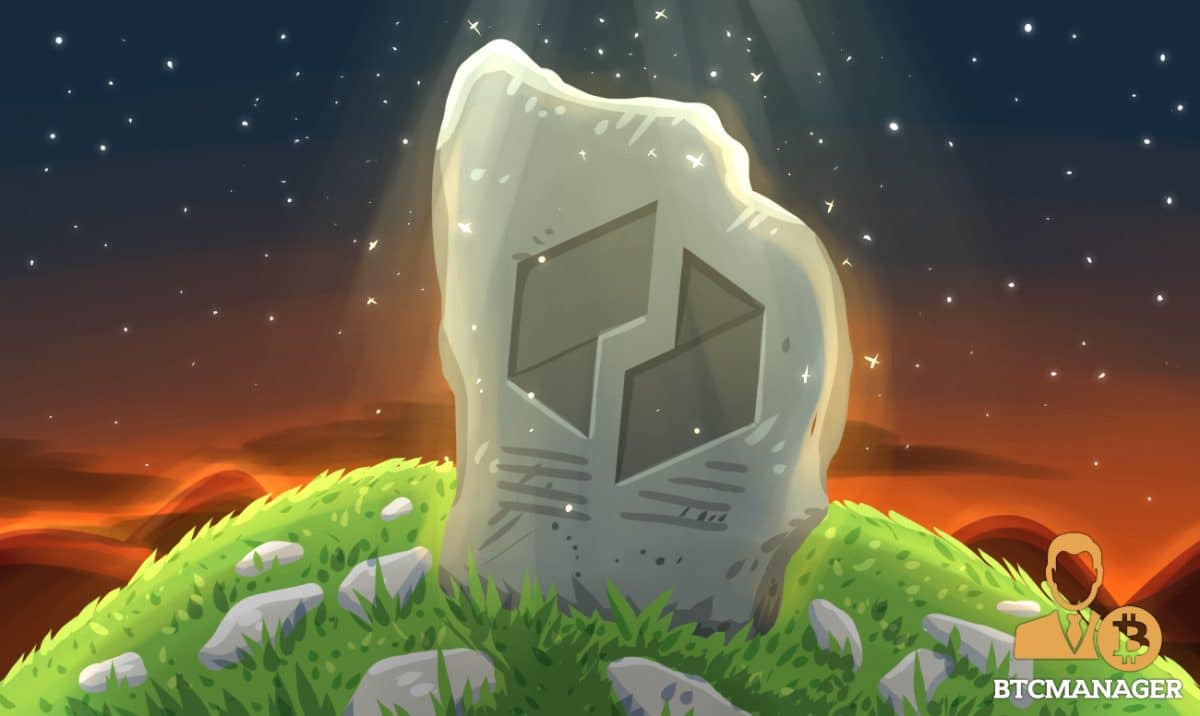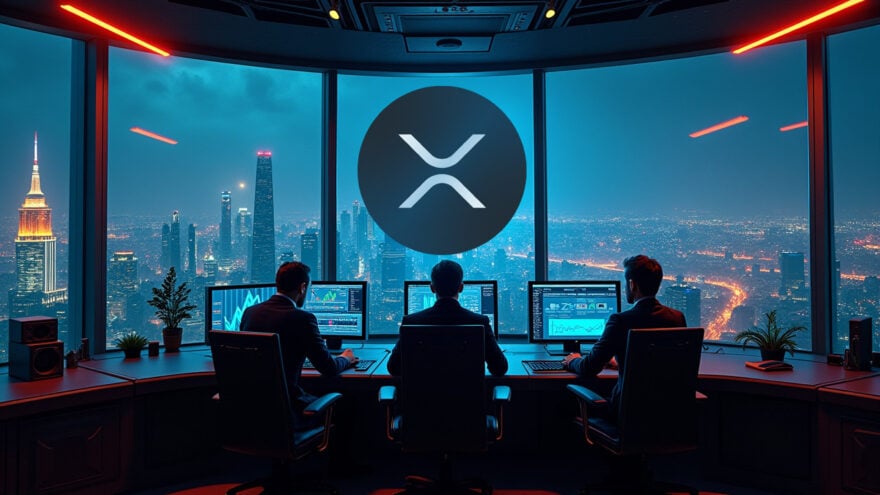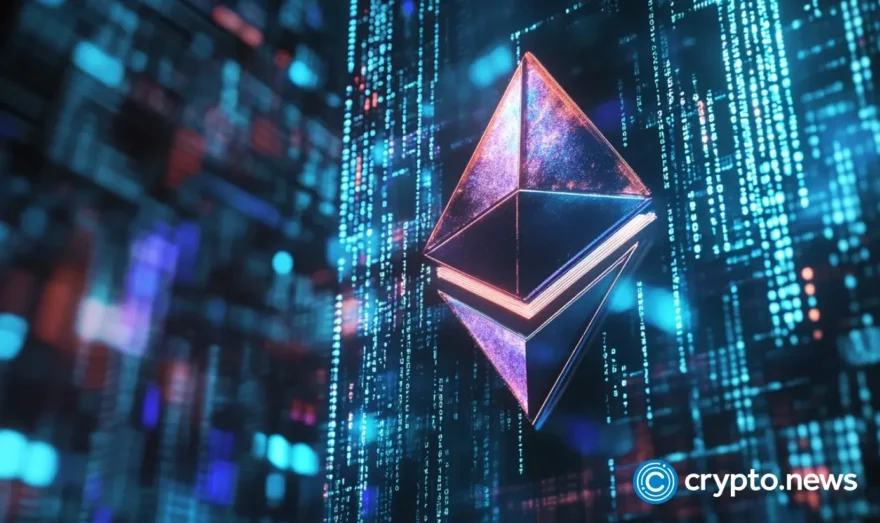What Is Ubiq And Is It A Good Investment?

There is no shortage of blockchain projects that are aiming to revolutionize certain aspects of the private or public sector. While distributed ledger technology is considered one of the most innovative technological offerings of recent times, many believe there is a need for a blockchain-based solution that can live up to the potential, especially in a real-world scenario.
There are a number of firms looking to create enterprise-ready blockchain solutions that are stable, easily deployable and secure. Among these, a notable name is Ubiq.
Table of Contents
The Creation of Ubiq
Ubiq is a blockchain solution that aims to facilitate the creation, deployment as well as management of interactions between different parties through self-enforcing smart contracts. The company defines itself as a “blockchain platform which allows the creation and implementation of smart contracts and decentralized applications.”
Ubiq was created as a result of a port of an existing blockchain onto the Ethereum blockchain and a subsequent hard fork to create a stand-alone blockchain. In an attempt to introduce a fair cryptocurrency into the market, Jumbucks was created on September 2, 2014. Adhering to the concept of a fair launch, the digital currency was launched without a pre-mine or an ICO.
Following two years of research and development, the team decided to port the Jumbuck blockchain to Ethereum where there would be more room for growth regarding creating viable real-world solutions. The new blockchain would be named Ubiq. “January 28, 2017, will mark the inception of the new blockchain and transfer of value from the existing Jumbucks blockchain to the Ethereum-based Ubiq blockchain. The new chain will bring about many new capabilities through smart contracts, giving us a far greater opportunity for lasting applications while still having the existing value and stability from an established three-year-old market.”
In addition, porting the Jumbucks blockchain served another purpose as it was utilized to create the genesis block of the Ubiq blockchain. The team explains:
“The Ubiq blockchain is unique in that it has incorporated the seed ledger of the old Jumbucks (JBS) chain and transferred its value over to the new chain. As such we call block zero the Nucleus of the Ubiq blockchain as it contains the encoded information of the claimed swap process.”
Following the successful blockchain swap, Ubiq hard-forked from Ethereum and now operates on an independent blockchain. Its codebase is similar to its parent chain but is modified to be able to support certain features as well as promote the level of stability that is required of an enterprise-ready blockchain solution.
Due to the fact that Ubiq is based on Ethereum, it can support the innovative features witnessed within Ethereum but without many of the challenges that plague its blockchain.
Explaining further, Alex Sterk the CEO of Ubiq Technologies stated:
“The Ubiq network provides a stable blockchain to host an Ethereum Virtual Machine. With several more hard forks planned for ETH’s future, businesses wanting to implement applications on an Ethereum Virtual Machine would be subject to frequent updates and the risk of instability associated with blockchain hard forks. The Ubiq development team’s commitment and focus on providing a stable and reliable platform, allows customers in finance and enterprise the ability to build today, without worrying about an uncertain tomorrow.”
Ubiq’s Blockchain Specification
The Ubiq blockchain utilizes a proof-of-work algorithm to achieve consensus. Initially, the blockchain used Ethereums Dagger Hashimoto, however, following updates, the developers decided on utilizing a newer version of the algorithm, known as Ethash.
The blocktime within on Ubiq’s blockchain is 88 seconds. Moreover one of the innovations native to the Ubiq blockchain is the Flux Difficulty Algorithm. This algorithm helps the blockchain maintain a stable hashrate. “The newly designed Flux difficulty algorithm maintains this 88 second block time far better than the stock code, and allows the network to operate at lower and more varying hashrates.”
Ubiq has a native cryptographic token that is used to power all transactions within its blockchain. This token is called Ubiq (UBQ). The token is set to have an infinite supply. However, block rewards are set to decrease every year. Starting at eight tokens per block, the reward is currently at seven tokens. The block reward will continue to decrease at this rate until the reward of one token per block is achieved. To offset the lack of a hard cap on the number of tokens, the blockchain enforces an inflation rate on the tokens every year. It started at 7.29 percent and will drop with every passing year to the minimum of 0.71 percent.
Sterk adds, “The inflation rate of eight UBQ per block (7.3 percent) for the first year is quite manageable as the network value grows. Our monetary policy decreases this inflation to one UBQ per block (0.7 percent) over the next eight years — this coupled with Ubiq’s system of handling uncle rewards, provides the platform with excellent inflation consistency.”
It is important to note that because of the relatively low hashrate employed by Ubiq as well as its flux algorithm, it is possible to mine the token with a graphics card that has over 2GB of memory on it. This is welcome news for those wishing to earn block rewards as miners.
The Team
The Ubiq team is a small five-person team. The team works on a not-for-profit basis. In addition, because the token was introduced on a fair launch basis, no tokens were reserved for the developers.
The team members have previously worked on a number notable of cryptocurrency projects. They are Julian Yap, Alex Williams, Chris Hansen, Aldo Borrero and Alex Sterk. Yap has reviewed over 100 coin codes while working at Bittrex while Williams created the well-known blockchain explorer Iquidus. Sterk is also a known name within the crypto community, hosting the Blocktalk show.
The Price Activity of the Ubiq Token
Since porting the history of the dormant Jumbucks digital currency onto the new blockchain in early 2017, Ubiq has showcased steady growth. The token reached its all-time high of around $6.30 on January 4, 2018.
Climbing from $0.06 per Ubiq token to its all-time high, the digital currency has showcased substantial growth. While the cryptocurrency is currently trading at around the $3.00 mark, it is still an impressive rally when compared to its launch barely a year ago. The token is currently ranked 125th in terms of market capitalization of which the value is $114 million.
UBQ has experienced a bullish run recently as the Escher (ESCH) airdrop was announced for holders of the altcoin. The airdrop will commence April 30, 2018, and is slightly different to the airdrops we have seen so far. The Escher token can only be claimed from inside the Fusion client, and those with UBQ on exchanges will not be credited. Secondly, the purpose of the token is for governance and increase the utility of the Ubiq network:
“As we’ve previously stated, we are not appealing to exchanges to participate or even list the token as trading is not the use case we envision for this system. The plan is to have four distributions a year, with the amount of ESCH distributed dropping each year.”
The token is tradeable on a number of exchanges such as Bittrex, Cryptopia, Upbit, and Litebit. However, it is important to note that it is not currently possible to purchase the token using fiat currency. It can only be purchased with cryptocurrency.
Ubiq provides an application through which it is possible to access the Ubiq blockchain. The application is called Fusion. The interface is a full Ubiq node and acts as a wallet in addition to allowing one to use the Ubiq platform to create either smart contracts or tokens.
Strategic Partnerships
On January 23, one of Canada’s leading digital currency exchanges, Einstein Capital Partners announced a partnership with the little-known blockchain startup Ubiq. The exchange revealed it was going to use a blockchain solution provided by Ubiq to store information related to its customers. “The partnership will be evaluated for the potential onboarding of user accounts on the Blockchain for digital identity management and anti-money laundering compliance by Einstein Capital Partners.”
This move signaled a vote of confidence in the capabilities of Ubiq blockchain offering with Michael Gokturk, the CEO of the exchange stating, “We are very excited to be moving in the direction of using digital currency transactions and the Blockchain for identity management. It allows us to record and manage corporate records with transparency, making it easier to track and exchange shareholder information, and eventually to be able to issue shares right from the blockchain.”
Should You A UBQ to Your Portfolio?
While there are a number of better-known blockchain solutions that aim to provide enterprise-ready resources such as Ethereum, Ubiq differentiates itself by providing a more stable network upon which business can build tools. Businesses are able to ascertain when updates are to be made and can anticipate these changes thus reducing the possibility of bugs in their offerings following an upgrade.
Moreover, because of its monetary policy, it is likely that the currency will be attractive to those looking to participate in the community as miners. Also, the relation between the value of the token and that of businesses using the Ubiq platform is proportional, meaning that the value of the token is likely to grow as more firms start to utilize the Ubiq blockchain.
As investing in cryptocurrencies carries substantial risk, it is important to be prudent and only invest what you can afford to lose. However, with the current offerings, it is possible that companies will continue to take notice of as well as work with the Ubiq platform thus leading to an increase in the value of its token.














